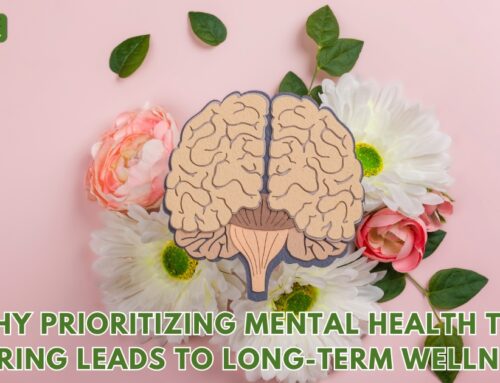How Therapy Can Help You Shed Stress and Embrace a Healthier Mindset
Stress is a natural part of life, but when it becomes overwhelming, it can negatively impact mental, emotional, and physical health. Therapy provides a safe space to navigate stress, build resilience, and develop strategies for long-term well-being. Whether you’re dealing with daily pressures, anxiety, or deeper emotional struggles, therapy can be a transformative tool in achieving a healthier mindset.
Understanding Stress and Its Impact
Stress affects individuals differently, but common consequences include:
- Mental Effects – Anxiety, depression, irritability, or difficulty concentrating.
- Physical Effects – Headaches, fatigue, insomnia, and weakened immune function.
- Behavioral Effects – Social withdrawal, unhealthy coping mechanisms, or decreased productivity.
- Emotional Effects – Feelings of overwhelm, frustration, or hopelessness.
How Therapy Helps Reduce Stress
Therapy equips individuals with practical tools to manage stress effectively. Some key benefits include:
1. Identifying Stress Triggers
- Therapists help uncover sources of stress, whether personal, professional, or environmental.
- Understanding triggers allows individuals to take proactive steps toward stress management.
- Awareness fosters healthier responses to stressful situations.
2. Developing Coping Strategies
- Therapy provides customized stress management techniques, including mindfulness and relaxation exercises.
- Cognitive-behavioral therapy (CBT) helps reframe negative thought patterns.
- Learning effective problem-solving skills reduces anxiety and improves decision-making.
3. Improving Emotional Resilience
- Therapy fosters self-awareness and emotional regulation.
- Developing resilience allows individuals to bounce back from adversity.
- Strengthening coping mechanisms promotes long-term mental well-being.
4. Enhancing Communication and Relationships
- Stress can strain personal and professional relationships.
- Therapy teaches effective communication and conflict-resolution skills.
- Stronger relationships contribute to emotional support and reduced stress levels.
5. Encouraging Healthy Lifestyle Changes
- Therapists help individuals recognize the impact of diet, exercise, and sleep on stress levels.
- Encouraging self-care routines improves overall well-being.
- Developing healthier habits contributes to long-term stress management.
6. Offering a Safe Space for Expression
- Talking through challenges with a therapist provides emotional relief.
- Therapy offers a judgment-free environment to explore thoughts and feelings.
- Expressing emotions constructively fosters personal growth and clarity.
Types of Therapy That Help with Stress
Different therapeutic approaches can be beneficial for stress management, including:
- Cognitive-Behavioral Therapy (CBT) – Helps identify and reframe negative thinking patterns.
- Mindfulness-Based Therapy – Encourages presence, relaxation, and stress reduction.
- Talk Therapy (Psychotherapy) – Provides emotional support and self-reflection.
- Group Therapy – Offers peer support and shared experiences.
- Art or Music Therapy – Uses creative expression as a form of emotional release.
When to Seek Therapy for Stress
Consider therapy if stress:
- Interferes with daily activities or responsibilities.
- Causes persistent anxiety, sadness, or frustration.
- Leads to unhealthy coping mechanisms, such as substance use or social withdrawal.
- Affects relationships, work performance, or overall quality of life.
- Feels overwhelming and unmanageable on your own.
Embracing a Healthier Mindset Through Therapy
- Therapy encourages self-care and prioritization of mental health.
- Long-term stress management leads to improved mood and increased energy.
- Building self-awareness fosters a more balanced and fulfilling life.
- Developing stress-management skills benefits both present and future well-being.
Stress is inevitable, but therapy provides the tools to manage it effectively. By seeking professional support, individuals can shed stress, embrace healthier thought patterns, and cultivate a more resilient mindset. If stress feels overwhelming, reaching out for therapy could be the first step toward lasting well-being.
https://wocounseling-recovery.com/contact/





